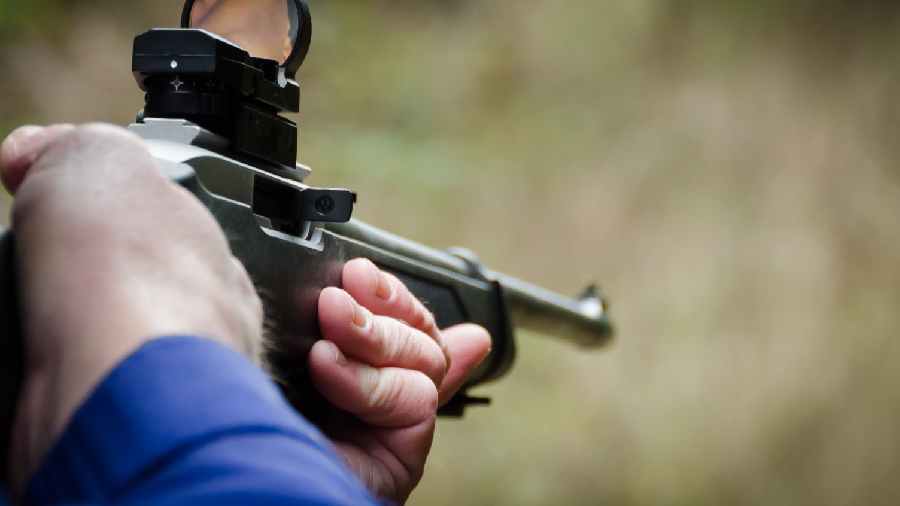Congress failed to impose gun restrictions after the school massacres in Newtown, Connecticut, and Parkland, Florida, and there’s little confidence that 21 deaths at an elementary school in Uvalde, Texas, will change matters now.
But states aren’t waiting.
In New Jersey, governor Phil Murphy urged lawmakers to advance firearms safety measures, including raising the age to 21 for purchases of long guns and exposing gun makers to civil lawsuits.
In New York — where an 18-year-old in Buffalo was charged two weeks ago with committing a racist mass shooting — governor Kathy Hochul said she would seek to ban people under 21 from purchasing AR-15-style rifles.
And in California — where a politically motivated mass shooting erupted at a luncheon of older churchgoers this month — legislative leaders and governor Gavin Newsom fast-tracked tougher controls on firearms.
“We are getting a lot of inquiries even though a lot of state legislatures are out of session,” Nico Bocour, director of government affairs for the anti-gun-violence group Giffords, said after the Uvalde shooting. “In the wake of a lot of inaction by Congress, states want to step up and keep people safe.”
In Republican-controlled statehouses, however, the moves evoked an equal and opposite reaction. A day after Uvalde, rural conservatives in Pennsylvania and Michigan beat back Democratic attempts to force votes on long-blocked gun safety legislation.
And in Texas, governor Greg Abbott and other Republican officials blamed the school massacre on a gunman with mental health problems, not gun laws. They accused Democrats of politicising the situation with calls for gun control.
“Anybody who shoots somebody else has a mental health challenge, period,” Abbott said a day after the Uvalde shooting.
The state actions come as hope for congressional consensus has waned to a flicker, not only on gun violence, but on an array of social issues. As polarised politics repeatedly trump compromise in a narrowly divided Congress, liberal and conservative states have enacted disparate and often opposing agendas, erecting a patchwork of policies on a range of issues, including abortion and civil rights.
Since 2019, federal legislation to expand criminal background checks for gun purchases has twice passed the House only to languish amid Senate Republican opposition. On Thursday, a small, bipartisan group of senators said they would work through the weekend in a search for common ground.
“We beg you,” a group of school principals who survived past campus shootings wrote in a letter that was expected to appear as a full-page ad in The Washington Post on Sunday. “Do something. Do anything.”
But as they publicly mourned the tragedy in Uvalde, Republican senators showed scant signs that they had budged. And few believe that gridlocked Washington will accomplish much. The one modest proposal that seemed to show promise would kick decisions to statehouses: It would offer incentives for states to pass “red flag” laws aimed at keeping guns out of the hands of people who are mentally ill.
Roughly three in five state legislatures are Republican-controlled.
America’s long, bitter fight over guns has hardened lines to the point that refusing to compromise on the Second Amendment has become part of the identity of the Republican Party.
After the Supreme Court in December preserved a Texas law encouraging private lawsuits against anyone who helps terminate a pregnancy after six weeks, California’s governor proposed parallel legislation to incentivise lawsuits against anyone who traffics in banned firearms.
At the time, Newsom’s social media call was seen as an impulsive retort that lawmakers weren’t sure whether to take seriously, as it came on a Saturday evening and ran counter to his previous view of the Constitution. It is now the foundation for the California bill that has drawn the most attention this week.
New York Times News Service











